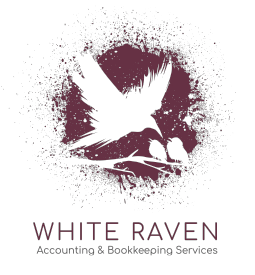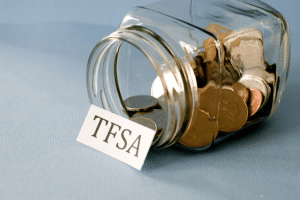Tax season is an annual event that tends to creep up on us, and it’s no different in 2025. If you’re like many Canadians who want to ensure a hassle-free tax season and maximize your tax return, knowing when taxes are due and how to file them is essential. Whether you’re planning to file yourself or using a professional for your personal taxes, this guide will give you the knowledge to navigate the 2025 tax season effectively.
When Is Tax Season in 2026?
The Canadian tax season in 2026 runs from January 1 to April 30. During this period, Canadians should prepare their financial documents, such as T4 slips. Being prepared early is especially crucial for those who are self-employed or have multiple sources of income.
When Are Taxes Due? Tax Filing Deadline 2026
For the 2025 tax year, the tax filing deadline is April 30th, 2026. Unless there are special circumstances that require installment payments such as a second job, rental income, etc, then the due date and any balance owing must be paid by April 30th as well. The CRA will open its
For the 2025 tax year, the filing deadline for most taxpayers is April 30, 2026. Any balance owed must also be paid by this date. The CRA’s EFILE and NETFILE services are now open as of February 23, 2026, allowing Canadians to submit their taxes electronically. Self-employed individuals have until June 15, 2026, to file, but if they owe taxes, they must still pay by April 30.
PRPP, SPP, and RRSP Deadline 2025
If you’re looking to reduce your 2025 tax liability, you have until March 2nd, 2026, to contribute to your PRPP (Pooled Registered Pension Plan), SPP (Specified Pension Plan), or RRSP (Registered Retirement Savings Plan). Be sure to contribute by this date to take full advantage of tax savings and maximize your return.
Extensions and Late Filing Penalties
Life can get busy, and sometimes, despite your best intentions, you might find yourself unable to meet the April 30th deadline. In such cases, you can request an extension, which typically provides an additional six months to file your taxes. It’s important to note that this extension only pertains to filing your return, not to paying any taxes owed.
While an extension can be a lifesaver, keep in mind that failing to file your taxes on time may result in penalties and interest charges. The penalties for late filing can be significant, making it crucial to either file on time or request an extension well before the April 30th deadline. The key takeaway here is not to procrastinate when it comes to your taxes.
Important Changes for the 2026 Tax Season
Each year, the Canadian tax system undergoes changes that may affect your filing process. Here are the key updates for the 2026 tax season:
- New Tax Credits and Deductions: For 2026, watch for new or expanded credits such as those for energy efficiency, childcare, and other targeted deductions introduced by the federal government.
- Increased RRSP Contribution Limit: For 2026, the Registered Retirement Savings Plan (RRSP) contribution limit has been increased to $33,810, up from $32,490 in 2025. Be sure to make full use of any unused contribution room to maximize your tax benefits.
- Increased RESP Contribution Limits: Be aware of potential increases to the contribution limits for the Registered Education Savings Plan (RESP), which helps families save for post-secondary education. As of 2025, families can contribute up to a maximum of $50,000 per child over the lifetime of the RESP, with government grants providing additional benefits for eligible contributions.
- Tax Bracket Adjustments: As with every year, tax brackets are adjusted for inflation. In 2025, these income thresholds will rise, ensuring that more of your income could fall into a lower tax bracket, potentially reducing your overall tax bill.
- Tax-Free First Home Savings Account (FHSA): If you’re saving for your first home, the FHSA allows you to contribute up to $40,000 tax-free. Contributions made in 2025 remain deductible, providing a great savings opportunity for first-time homebuyers.
- Climate Action Incentive (CAI): The Climate Action Incentive has been eliminated as of April 1st, 2025. The final payment was issued in January 2025.
Filing Options
When it comes to filing your taxes, you have a few options to choose from:
- Online Filing: Using tax software such as TurboTax, or online services has become increasingly popular. It offers a convenient and efficient way to file your taxes and often provides step-by-step guidance.
- Paper Returns: If you prefer the old-fashioned way, you can still file your taxes by mail. However, this process typically takes longer to process, and there’s a higher likelihood of errors.
- Tax Professional: If you’re uncertain about the process, have complex tax situations, or want the peace of mind of knowing your taxes are filed correctly, then enlisting the help of a tax professional can be a wise choice. They have the expertise to navigate tax laws and regulations, ensuring your return is accurate and maximizes your deductions.
Documents and Information Needed
Before you start the tax filing process, you’ll need to gather the necessary documents and information. Here are some items to collect:
- T4 Slips: Your T4 slip is essential if you’re employed. It outlines your employment income and deductions.
- Receipts for Deductions: Gather receipts for tax deductions, such as charitable donations, medical expenses, and tuition.
- Personal Information: Ensure you have your Social Insurance Number (SIN) and the SINs of your dependents, if applicable.
- Tax Forms: If you’re self-employed or have income from other sources, you’ll need the appropriate tax forms, such as T2125 for business income.
- Investment Statements: If you have investments, you’ll need statements showing capital gains, losses, and investment income.
- RRSP/TFSA Contribution Information: Gather information on your RRSP and TFSA contributions, including unused contribution room.
Tax Credits and Deductions
One of the most crucial aspects of the tax filing process is identifying and claiming tax credits and deductions. These can significantly impact the amount you owe or the refund you receive. Some common credits and deductions include:
- Canada Child Benefit (CCB): If you have children, you might be eligible for the Canada Child Benefit, which provides financial assistance to eligible families.
- Medical Expenses: You can claim medical expenses, including prescription drugs, dental work, and certain medical procedures.
- RRSP Contributions: Contributions to your RRSP can reduce your taxable income and lead to a tax refund.
- Home Buyer’s Amount: If you bought your first home in the year, you might be eligible for this credit.
- Educational Credits: If you’re a student or have educational expenses, there are various credits and deductions you can claim.
Tips for a Smooth Tax Filing Process
Here are some tips to help you make the tax filing process as smooth as possible:
- Stay Organized: Keeping all your tax-related documents and receipts organized will save you time and reduce stress.
- Use Tax Software: Tax software can guide you through the process and help identify credits and deductions you may have missed.
- Plan Ahead: Don’t wait until the last minute. Starting early ensures you have time to address any issues that may arise.
- Review Your Return: Before submitting your return, carefully review it to ensure accuracy. Mistakes can lead to delays and possible penalties.
- Consider a Tax Professional: If you’re unsure about any aspect of your return or have a complex financial situation, seeking professional help can be a smart investment.
Hiring a Tax Professional
For many Canadians, enlisting the services of a tax professional is a decision that brings peace of mind and financial benefits. A tax professional, such as a certified accountant or a tax preparer, can provide expert guidance in navigating the complexities of the tax system, ensuring you take full advantage of all eligible deductions and credits.
Tax professionals offer several advantages, including:
- Expertise: They have in-depth knowledge of tax laws and regulations.
- Minimizing Errors: Professionals are less likely to make mistakes in your return.
- Optimization: They can recommend strategies for optimizing your financial situation.
When choosing a tax professional, be sure to research their qualifications, reputation, and fees to find the best fit for your needs. While going to H&R Block may be the first choice for most Canadians, going to a local company such as White Raven Accounting can have many benefits. Because of their smaller clientele, you receive better customer support and a more personal and easy experience.
Conclusion
Filing your personal taxes in 2026 doesn’t need to be a stressful experience. By understanding the important dates, changes in the tax system, and your filing options, you can make the process smoother and potentially save money through deductions and credits. Whether you decide to tackle your taxes yourself or seek the expertise of a professional, being informed and proactive can make a significant difference in your financial well-being.
With the 2026 tax season quickly approaching, staying organized, understanding tax changes, and taking advantage of available credits and deductions can help ensure a smoother filing experience. No matter your approach, the goal is the same: to meet the tax deadline, keep your financial matters in order, and potentially maximize your return. With the right knowledge and preparation, you can confidently navigate the world of personal taxes in 2026 and secure your financial future.





